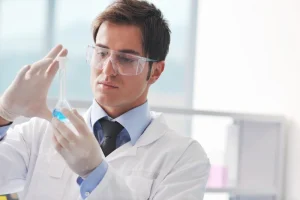
Their alcoholism is not cured but is at bay in a way that allows them to be free of the cravings and mental obsession. There is an important distinction between being “sober” and being in “recovery”. The differences are clear to those who have experienced both phases in their healing process from alcoholism. https://ecosoberhouse.com/ BetterHelp can connect you to an addiction and mental health counselor. If you’re involved in a 12-step program, you likely already know the importance of milestones. In these programs, it’s customary to receive plastic chips as you progress to the one-year mark, at which time you receive a bronze coin.

Alcoholics anonymous and other support groups
- It can be a good replacement for the release of endorphins caused by drinking alcohol.
- These support networks are formed through aftercare programs, support groups, and outpatient treatment opportunities that help to support the initial work done in inpatient treatment.
- Most people don’t recover from substance use disorders overnight.
- By Julia Childs Heyl, MSWJulia Childs Heyl, MSW, is a clinical social worker and writer.
- More importantly, drinking in moderation just doesn’t come naturally for everyone.
Growing up, she witnessed her parents struggle with alcoholism and hated it. But, working in fast-paced restaurants from a young age led her to party with the staff who were older than her. From there, she began living a fast life where she drank, used, and created a life where all of her peers were doing the same. When she was 20, a friend of hers took her to a 12-step meeting that led Amy to be sober for about a year, but it didn’t stick. If you believe you might have a drinking problem or want additional help to abstain from alcohol, consider talking to your doctor or a mental health professional. Your doctor can supervise your detox, recommend treatment options, and refer you to local resources in your area that can help.
How Do I Know if I’m a Dry Drunk?
However, the word is often used in different ways in different contexts. Many 12-step programs suggest that sobriety means total abstinence, which means never using the substance again. Other definitions, however, focus on the process of recovery and coping habits that support health and wellness over the long term. They have also treated their underlying issues (mental health, spiritual, physical) that led to or resulted from their drinking.

What Is Sobriety?
She met people who supported her, and others learned to trust her. Now, through word of mouth, she’s contacted to clean vacation rentals and slowly putting the pieces of her life back together. “Am I really willing to lose a wonderful relationship, this small family I built, for alcohol or this fun party drug that I think makes me have a good time? A person who has friends, family and more who love them – and find themselves also sucked into the vortex of their loved one’s addiction.
- Over the past several years, his marriage started to disintegrate.
- If you find it difficult to make new, sober friends, try joining a support group.
- Financial issues and problems finding and keeping employment can be triggers for relapse.
- A common initial treatment option for someone with an alcohol addiction is an outpatient or inpatient rehabilitation program.
Defining the Terms
- It is uncertain whether one causes the other, however, both can contribute to the origination, and maintenance of the other disorder.
- Holistic care focuses on the natural part of life and healing the whole self.
- Ben’s mother divorced him and raised Ben and his four sisters on her own.
- For that reason, simply quitting substances without changing one’s lifestyle or other behaviors and thought processes simply isn’t enough.
- He continued by sharing that those suffering from alcohol use disorder think about alcohol differently than those who don’t suffer from the disorder.
For Many, Not Full Abstinence,” to be sober previously meant totally abstaining from alcohol and all other intoxicating substances. Keep in mind that alcohol alternatives shouldn’t be used as part of addiction recovery. (You shouldn’t be drinking anything that resembles alcohol if you’re an alcoholic, even if it’s alcohol-free.) They can be a positive addition to a sober curious lifestyle, though. Addiction support groups and recovery programs like Alcoholics Anonymous (AA) consider emotional sobriety a key component of maintaining the self-control to keep yourself from drinking alcohol long-term.
Sobriety Goes Social: Sober Bars Are on the Rise
- If PAWS is severe or if you’re experiencing prolonged symptoms, a medical professional can help you work through them and remain in recovery without relapse.
- You might also consider joining a support group, attending sober curious events, or visiting a sober bar or coffee shop.
- It might also mean limiting yourself to a single drink once each week when you are out with friends or replacing your usual cocktail with a non-alcohol option.
- “I went to a neurologist, and he prescribed me methadone,” Haley explained of trying to ease her back pain.
- Just keep in mind that your improvements won’t happen overnight.
- Ben began buying airplane bottles of liquor to consume in secret.
What makes sober curiosity so widespread, though, is its adaptable meaning. ‘Sober curious’ tends to mean something different to every sober curious individual, making it an inclusive cultural movement. Finally, if you’ve tried self-help strategies and find yourself not able to fully quit drinking, it may sober alcoholic meaning be time to seek professional help. There’s no one-size-fits-all approach to stopping alcohol use and treating alcohol misuse, but no matter how severe the issue may seem, recovery is possible for every person. Deciding to quit isn’t easy, but it’s a brave and commendable first step toward becoming sober.
National FASD Framework
Health Categories to Explore



